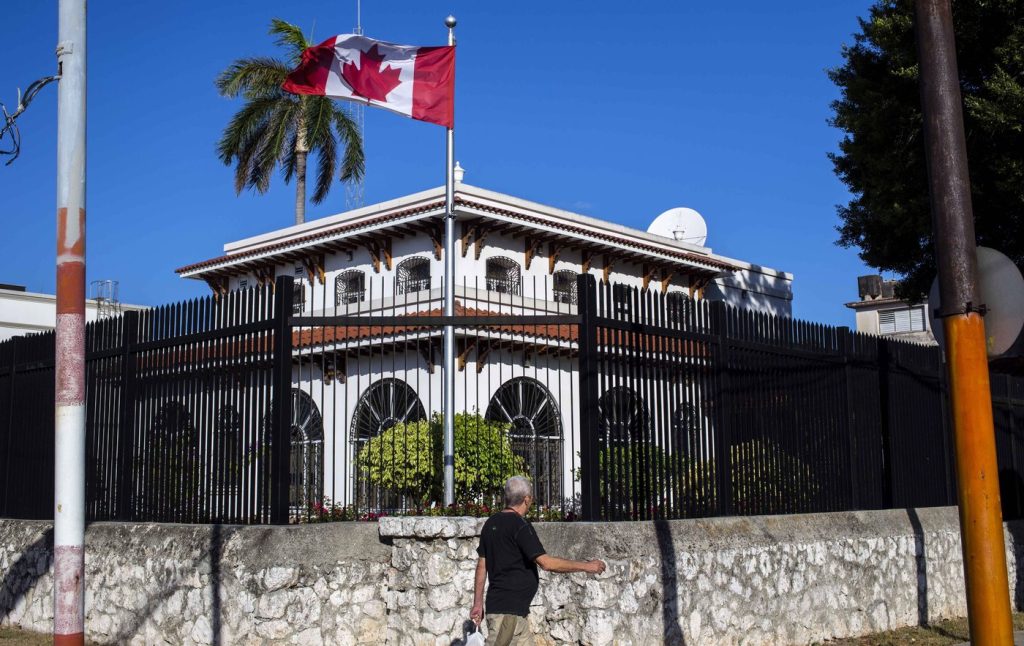OTTAWA — A lawyer representing Canadian diplomats and their families has expressed strong belief that the mysterious health ailments they experienced in Cuba were caused by a foreign adversary, despite a federal government report that rejects such allegations. This situation has developed over a span of eight years, during which foreign service officials and their dependents have reported various symptoms, including headaches, memory loss, mood changes, vision problems, nausea, and nosebleeds.
The 17 plaintiffs involved in a legal action against the Canadian government claim that the government failed to protect them from these health issues, concealed critical information, and downplayed the severity of the risks they faced. The Canadian government, however, has denied any negligence or wrongdoing in this matter.
Several U.S. personnel who were stationed in Cuba have reported similar health issues, commonly referred to as Havana Syndrome. Proposed explanations for the cause of these symptoms have included pesticide exposure, environmental factors like chirping crickets, faulty eavesdropping devices, and suggestions of targeted sonic or energy attacks by an enemy state. In response to these concerns, the Canadian government stated it found no evidence of any foul play by a foreign adversary.
A report from Global Affairs Canada, completed in August 2024, stated that their investigation concluded these unexplained health incidents were not a result of malicious acts by a foreign actor. The report, which relies on findings from an interdepartmental task force and external experts, indicated that pre-existing health conditions, environmental influences, and standard illnesses likely contributed to the symptoms reported by the diplomats and their families. Importantly, the report clarified that its findings did not discredit the legitimacy of the symptoms experienced.
Paul Miller, the attorney for the plaintiffs, expressed substantial confidence in the hypothesis that a foreign actor caused the Canadians' health issues. He stated, “I really trust the people that I have spoken with and met with,” adding his skepticism towards the Global Affairs report, which he believes seeks to promote a narrative favorable to the government.
The lawsuit initiated by the plaintiffs in 2019 is still pending resolution in Federal Court. A year ago, mediation attempts involving a former Supreme Court judge for nine family members in the case were unsuccessful, failing to reach any agreement. Miller mentioned that he had attempted to submit new evidence, but its disclosure is currently hindered by confidentiality concerns governed by the Canada Evidence Act.
The Global Affairs report outlines the various responses undertaken by federal agencies in light of the illness complaints, covering areas such as security, medical, and environmental evaluations. A multi-agency Integrated National Security Enforcement Team, led by the Royal Canadian Mounted Police (RCMP), commenced an investigation in June 2017. This team regularly sent officials to Cuba to evaluate the possibility of malicious activities against Canadian diplomats. They collaborated with U.S. counterparts in sharing relevant intelligence and data.
In 2019, devices designed to detect evidence of acoustic and radiation surges and to measure environmental conditions like temperature, humidity, and other factors were installed in the living quarters of Canadian personnel in Cuba. However, the collected data did not provide significant evidence that helped identify the causes of the reported symptoms, leading to the removal of these instruments in 2022.
The integrated national security team concluded that there was no evidence of criminality or any attribution of health symptoms to foreign actors. The report stated that assessments made by the RCMP and other domestic agencies found no known patterns linked to the symptoms or any related variables such as age, gender, or location. This conclusion aligns with U.S. intelligence assessments indicating that a foreign adversary's involvement in the reported health issues was "very unlikely."
While Canadian efforts have yet to uncover a definitive cause for the health issues reported by its diplomats, lawyer Mark Zaid, who represents several U.S. personnel, argues that there is robust evidence substantiating claims of anomalous health incidents linked to foreign adversaries. He indicates that classified information contradicts the public conclusions reached by U.S. authorities regarding these health conditions.
Despite the ongoing debate over the cause of the reported health issues, Global Affairs Canada maintains confidence in the findings outlined in its 2024 report. A spokesperson reaffirmed the department's commitment to supporting Canadian diplomats and their families while acknowledging the limitations on commenting due to ongoing legal proceedings. Internal notes from Global Affairs indicate that the incidents have revealed challenges in providing adequate healthcare to diplomats during unforeseen crises abroad and have initiated a thorough review of the overseas health programs crafted for employees and their families stationed worldwide.











